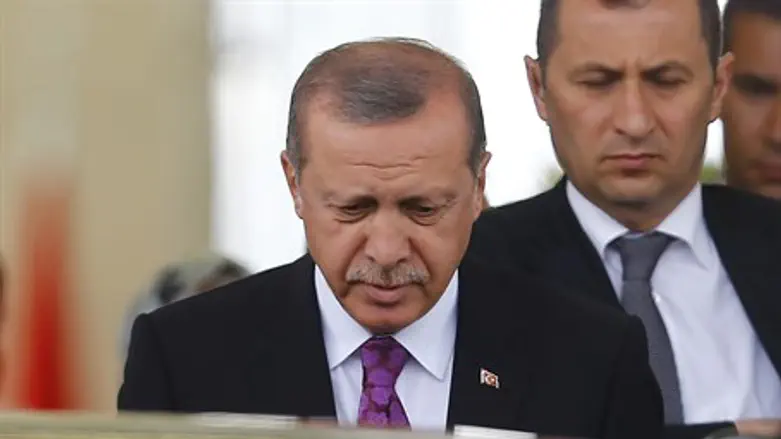
Russia is accusing Turkey of helping jihadists recruit fighters from the Caucasus and Central Asia to fight in Syria, according to a letter sent to the UN Security Council.
Russian Ambassador Vitaly Churkin said in the letter dated February 10 that recruiters from the Islamic State (ISIS) group had reportedly established a network in the Turkish city of Antalya for foreign fighters from the former Soviet Union.
The network is led by a Russian national identified as Ruslan Rastyamovich Khaibullov, who lives in Antalya with his family and has Turkish permanent residence.
In September, a group of 1,000 ISIS terrorists from Europe and Central Asia were taken from Turkey to Syria through the border crossing at Gaziantep, said the letter.
Russia has repeatedly accused Turkey of helping foreign fighters reach Syria and has stepped up its attacks after Ankara shot down a Russian warplane in November.
The recruiters are active in Turkish detention centers where they connect lawyers with foreigners who agree to join ISIS ranks once they are released, according to the letter.
In early 2015, Turkish intelligence services reportedly helped move ethnic Tatars who were fighting for the Al Qaeda aligned Nusra Front from Antalya to Eskisehir, said the letter.
Moscow said Turkish intelligence was helping to fly ISIS fighters from Syria through Turkey to Yemen using Turkish military air transport, or by sea to Yemen's port of Aden.
Russian nationals with contacts with Turkish security and police are involved in recruitment through madrasas in a number of Turkish cities, it added.
There was no immediate response from the Turkish mission to the United Nations on the allegations contained in the letter.
During a meeting on Tuesday, the Security Council discussed Turkey's shelling of Kurdish forces in northern Syria, which is fueling fears of an escalation in the war.
Russian Deputy Ambassador Vladimir Safronkov said he had asked Turkey's allies at the council to "send the appropriate strong signal - stop your inappropriate behavior in Syria."
AFP contributed to this report.
